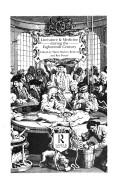| Listing 1 - 2 of 2 |
Sort by
|
Book
ISBN: 2082103625 9782082103626 Year: 2004 Publisher: Paris: Flammarion,
Abstract | Keywords | Export | Availability | Bookmark
 Loading...
Loading...Choose an application
- Reference Manager
- EndNote
- RefWorks (Direct export to RefWorks)
Notre corps ne ment jamais. Quand nous tombons malades, quand nous faisons l'expérience de la dépression, de la toxicomanie, de l'anorexie, c'est que nous sommes traversés par un conflit intérieur entre ce que nous ressentons et ce que nous voudrions ressentir. D'un côté, il y a notre corps, qui garde intacte la mémoire de notre histoire - et tout particulièrement des mauvais traitements que nos parents ont pu nous infliger -, de l'autre, il y a notre esprit et notre volonté, conditionnés par la morale et notre éducation, qui nous déterminent à aimer et honorer, quoi qu'il arrive, ces mêmes parents. Ce livre explore, à travers de nombreux exemples - notamment des vies d'écrivains célèbres -, les conséquences parfois dramatiques de ce conflit, mais il montre aussi qu'il existe des raisons d'espérer. Non, nous ne sommes pas obligés d'être les "bons" enfants de nos parents s'ils nous ont fait du mal et s'ils continuent de pratiquer le chantage affectif. Oui, c'est notre responsabilité que d'être attentifs aux signaux d'alerte que nous envoie notre corps. Au terme de ce chemin exigeant par lequel nous acceptons de relire l'histoire de nos rapports avec nos parents, il y a l'espoir de naître à une authentique liberté intérieure.
Mind and body --- Medicine, Psychosomatic --- Psychological manifestations of general diseases --- Family violence --- Parent and child --- Medicine in literature --- Psychoanalysis and literature --- Esprit et corps --- Médecine psychosomatique --- Manifestations psychologiques des maladies --- Violence familiale --- Parents et enfants --- Médecine dans la littérature --- Psychanalyse et littérature --- Psychological aspects --- Aspect psychologique --- Child abuse --- Discipline of children --- Parenting --- Adult child abuse victims --- Abused children --- Authors --- Mental health --- Psychology --- Médecine psychosomatique --- Médecine dans la littérature --- Psychanalyse et littérature --- Psychoanalysis --- Child abuse - Psychological aspects --- Family violence - Psychological aspects --- Discipline of children - Psychological aspects --- Parenting - Psychological aspects --- Adult child abuse victims - Mental health --- Abused children - Mental health --- Authors - Psychology

ISBN: 0415070821 9780415070829 Year: 1993 Publisher: London: Routledge,
Abstract | Keywords | Export | Availability | Bookmark
 Loading...
Loading...Choose an application
- Reference Manager
- EndNote
- RefWorks (Direct export to RefWorks)
Nowadays medicine and literature are widely seen as falling on different sides of the 'two cultures' divide. This was not so in the eighteenth century when doctors, scientists, writers and artists formed a well-integrated educated elite and often collaborated with each other. Physicians like Erasmus Darwin doubled as poets; novelists such as Tobias Smollett were medically qualified. This close interplay of medicine and literature in the Enlightenment showed in literary ideas and expression - debates raged as to whether writing was itself therapeutic, or possibly a disease. And poets and novelists for their part drew heavily on medical language and learning for their models of human nature, of the action of the emotions and the dialectic of body and psyche." "Written by leading historians of medicine and eighteenth-century literary critics, Literature and Medicine During the Eighteenth Century takes up these themes, paying special attention to questions of body language and the representation of the inner life. The chapters include an analysis of dreams and the unconscious; a discussion of the medical theories concerning the prolongation of life, and the way in which novelists picked up on this theme; and the cults of invalidism and hypochondria." "In addition, broader-ranging social historical discussions investigate the relations between the medical colleges and Grub Street, between the emergent professional doctor and the new breed of writers, and the way medicine contributed towards informing a gendered view of the world. A major new exploration of the unity of Enlightenment culture, Literature and Medicine During the Eighteenth Century will be of interest to intellectual historians, literary scholars and medical historians alike.
820 "17" --- English literature --- -Medicine --- -Medicine in literature. --- Literature and medicine --- -Clinical sciences --- Medical profession --- Human biology --- Life sciences --- Medical sciences --- Pathology --- Physicians --- British literature --- Inklings (Group of writers) --- Nonsense Club (Group of writers) --- Order of the Fancy (Group of writers) --- 820 "17" Engelse literatuur--18e eeuw. Periode 1700-1799 --- Engelse literatuur--18e eeuw. Periode 1700-1799 --- Medicine and literature --- Medicine and the humanities --- Medical care in literature --- History and criticism --- History --- -History --- -820 "17" --- -Medical care in literature --- Clinical sciences --- -Geneeskunde in de literatuur --- Medicine in literature --- Médecine dans la littérature --- Littérature et médecine --- Littérature et médecine --- Medicine --- Thematology --- anno 1700-1799 --- Littérature anglaise --- Médecine --- History and criticism. --- History. --- Histoire et critique --- Histoire --- 18th century --- Addresses, essays, lectures --- Great Britain --- 15th-18th centuries --- Health Workforce --- Medicine - Early works to 1800 --- English literature - 18th century - History and criticism --- Literature and medicine - History - 18th century --- Literature and medicine - Great Britain - History - 18th century --- Medicine - Great Britain - History - 18th century
| Listing 1 - 2 of 2 |
Sort by
|

 Search
Search Feedback
Feedback About UniCat
About UniCat  Help
Help News
News